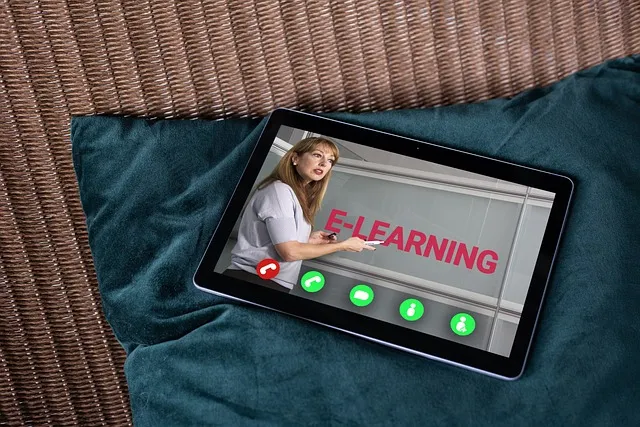Private Internet Access (PIA) acts as a lifeline for global medical researchers, offering an encrypted VPN service that preserves anonymity while securing sensitive health data and facilitating international collaboration. By masking IP addresses and encrypting traffic, PIA safeguards confidential information, enabling professionals to navigate diverse healthcare landscapes without compromising privacy or compliance with regulations like HIPAA. This secure platform is essential for global research teams to share insights, foster innovation, and expedite the dissemination of critical medical findings worldwide.
In an era where data privacy and security are paramount, IT professionals play a crucial role in protecting sensitive information. Anonymizing browsing is a vital skill, especially for medical researchers collaborating globally. This article explores the significance of online anonymity, delving into how tools like Private Internet Access (PIA) safeguard data while facilitating international research partnerships. We’ll discuss best practices to maintain privacy, ensuring secure and confidential interactions for researchers worldwide.
- Understanding Anonymity and Its Importance for Researchers
- The Role of Private Internet Access in Securing Sensitive Data
- Implementing PIA for Global Research Collaboration
- Best Practices for Maintaining Anonymity Online
Understanding Anonymity and Its Importance for Researchers

Anonymity is a cornerstone in the digital world, especially for medical researchers navigating the vast and intricate landscape of global healthcare data. By maintaining their privacy, researchers can freely explore sensitive topics without fear of identification or repercussions. This is particularly crucial when delving into personal health information or studying rare diseases that affect niche populations worldwide.
Private Internet Access plays a pivotal role in this context, offering medical professionals a secure and anonymous avenue to access critical data and collaborate internationally. With Private Internet Access, researchers can protect their digital footprints while ensuring they have the tools to navigate complex networks and gain insights that were once difficult to attain. This enables them to make significant breakthroughs, fostering innovation and enhancing global healthcare solutions.
The Role of Private Internet Access in Securing Sensitive Data

In today’s digital era, where vast amounts of sensitive data are exchanged online, securing private information is paramount, especially for medical researchers worldwide. This is where Private Internet Access (PIA) plays a pivotal role. PIA, as a leading VPN service provider, offers an encrypted tunnel that safeguards user data during internet activities. By masking IP addresses and routing traffic through secure servers, PIA ensures that even if data is intercepted, it remains unreadable without the decryption key.
For medical researchers dealing with confidential patient records, research data, or intellectual property, using PIA becomes a necessity. It allows them to access resources securely, protect their online identities, and maintain compliance with data privacy regulations such as HIPAA (Health Insurance Portability and Accountability Act). With PIA, researchers can seamlessly collaborate remotely while keeping their communications and files private, fostering innovation without compromising security.
Implementing PIA for Global Research Collaboration

For global research collaborations, especially in the medical field where sensitive data is frequently exchanged, implementing a Private Internet Access (PIA) service like Private Internet Access for Medical Researchers Worldwide becomes paramount. This secure VPN solution ensures that researchers across different geographical locations can connect and share information seamlessly while maintaining the highest level of privacy and security.
By leveraging PIA, international teams can navigate the digital landscape with confidence, knowing their data is encrypted and protected from prying eyes. This enables robust collaboration, facilitating the transfer of critical medical research findings and promoting innovation on a global scale.
Best Practices for Maintaining Anonymity Online

Maintaining anonymity online is a critical skill for IT professionals, especially those working in sensitive areas like medical research. One of the best practices is leveraging reputable VPN services like Private Internet Access (PIA). PIA encrypts your internet traffic, masking your IP address and location, ensuring your online activities remain private and untraceable. This is particularly important when accessing or sharing confidential data across global networks.
Additionally, regular updates of security software and browsing in incognito mode can further enhance anonymity. Avoid storing sensitive information in browsers or using easily guessable passwords. Employing these best practices enables IT professionals to navigate the digital landscape discreetly, safeguarding both their personal privacy and that of their organizations, particularly when working with medical data requiring strict confidentiality worldwide.
Anonymizing browsing is a vital skill for IT professionals, especially in the realm of global research collaboration. By utilizing tools like Private Internet Access (PIA), medical researchers worldwide can secure sensitive data and maintain privacy while conducting their work. Implementing best practices ensures that anonymity is not just a technical measure but also a cultural norm, fostering an environment where innovative thinking and collaboration thrive without compromise. For researchers navigating the digital landscape, understanding and adopting these strategies are essential steps towards revolutionizing their field.
